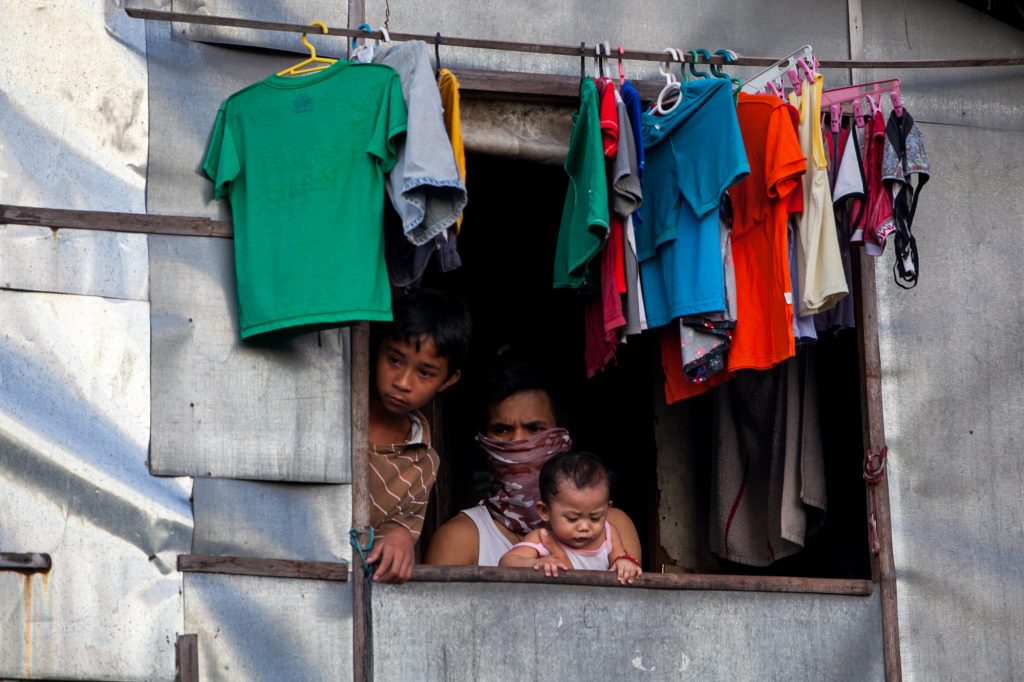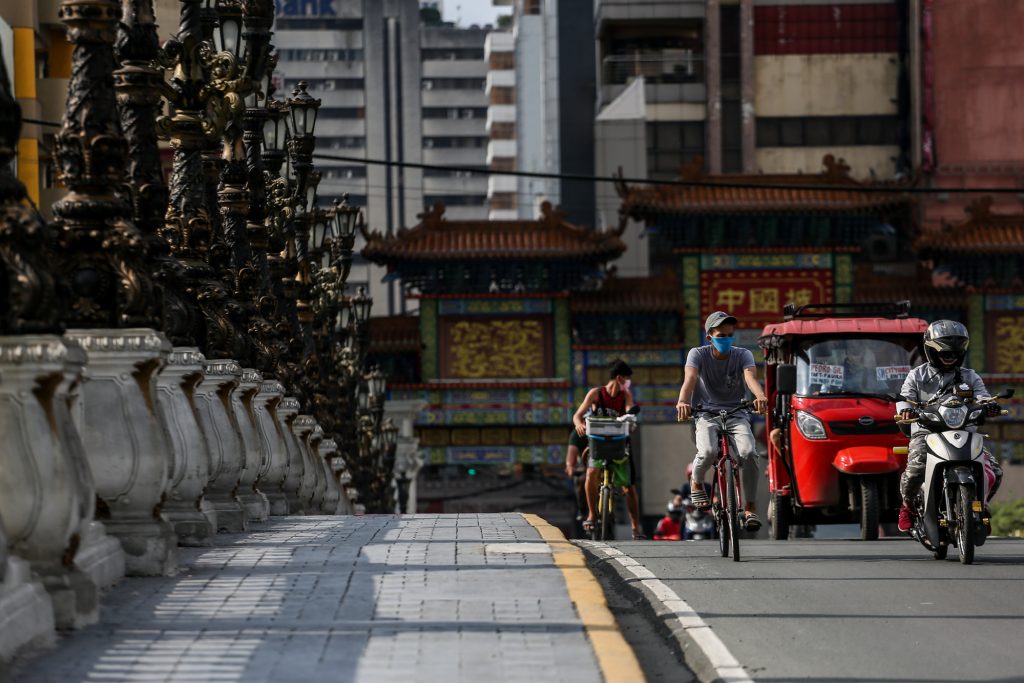
On January 13, the Philippine Congress resumed debates on Charter Change.
Alfredo Garbin Jr., chairing the panel charged to review the Constitution, said that it will only touch “restrictive” economic provisions of the 1987 Constitution. “Amendments to political provisions will not be entertained as it does not have the support of the majority,” one report said.
The trick, or so the president’s allies in Congress propose, is to add “unless otherwise provided by law” to the whole gamut of provisions which keep a tight rein on foreign ownerships of public utilities.
Adding this phrase also means that lawmakers will be legally allowed to draft laws which offer investors more elbowroom and control over alienable lands, educational institutions, media firms, and marketing and advertising companies.
Four months after declaring quarantine, Congress moved to postpone any deliberation on Charter Change until January or February 2021, with the intention of focusing its efforts on the pandemic response.
With a second (United Kingdom) and possible third (Japan) COVID-19 strains threatening to wreak havoc worldwide, it pays to ask again: why rush it?
First, there’s not an iota of assurance, let alone evidence, that when economic restrictions in the Constitution are lifted, foreign direct investments would come pouring in.
What experts are proposing are “countries should continue to share their experiences, shield populations who are at risk, and suppress transmission to save lives.”
With the virus mutating faster than we could manufacture a vaccine, it would probably take the next five to ten years before the global economy bounces back to baseline profits, let alone normalcy. The likelihood of a rebound to pre-COVID days remains a matter of debate.
Besides, it’s bad enough that such restrictions are getting the cold shoulder from multinational companies, thanks to government’s insistence on economic gains as a be-all and end-all of survival—come hell or high water. Restrictions, among others, help in the formation of a level playing field.
The absence of restrictions would only encourage predatory practices.
Moreover, such restrictions seem to be working, if you’re wont to believe the words of the World Bank. It said in 2019 that the country’s economic thrust remains strong “and is projected to grow 5.8% in 2019, before recovering to 6.1% and 6.2% in 2020 and 2021, respectively.”
The Asian Development Bank, on the other hand, even tracked the country’s GDP growth rate at 6.3% in 2018 to a mild contraction of 6% in 2019. Regardless of the predicted -7.3% contraction in 2020 (presumably due to the pandemic), the ADB projects a 6.5% spike in 2021.

So, why reinvent the wheel?
Yet, on the whole, the global economy is not looking very good despite bolstered economic measures and lockdown restrictions being lifted, with poverty hounding the steps of poorer countries. It cannot be denied that even the rich is in jeopardy.
If we’re truly enjoying the fruit of positive economic turnouts regardless of presence of constitutional restrictions, then why the move to amend or lay siege on the Constitution? Is there something here that government is not telling us?
The International Institute for Democracy and Electoral Assistance (IDEA) and University of the Philippines Center for Integrative and Development Studies, in its discussion paper, the Constitutional Performance Assessment in the Time of a Pandemic: The 1987 Constitution and the Philippines’ COVID-19 Response, made a startling observation as to where the country is going as regards the 1987 Constitution:
It said, “In terms of global comparisons, the V-Dem Pandemic Democratic Violations Index (PanDem), which captures the extent to which state responses to the pandemic violate democratic standards for emergency responses, mentioned that the Philippines is one of seven countries with a high risk of pandemic backsliding (V-Dem 2020). In International IDEA’s new COVID-19 Monitor, it pointed out three worrying areas of concern from a democratic and human rights standpoint; these are in the areas of freedom of expression, media integrity, and predictable enforcement (International IDEA 2020).”
The Constitution is bludgeoned enough as it is in terms of human rights violations and continuing impunity without government laying siege on the Charter. With healthcare, economic plans, social justice, climate agenda, and equal access to public service failing at alarming rates, a supposed economic volte-face that would supposedly come with the lifting of restrictions will not even be sufficient to turn the tide, what with corruption remaining largely unaddressed.
In fact, back in Sept. 2020, in the 75th Plenary Session of the United Nations, 35 world leaders gathered to assess the global financial situation resulting from COVID-19. They proposed, among others, a holistic restructuring of the global economic processes, with healthcare infrastructure and a geo-economic order as its centerpiece, one well adapted to the whole and not individually.
During the deliberations, these same world leaders highlighted the need for economic multipliers, such as the sustainability of resources made possible through environmental solutions and efforts to alleviate poverty. There was no mention of lifting economic restrictions in each of their nation’s Constitutions.
Tinkering with economic restrictions in the Constitution to woo foreign investors is one act which, in more ways than government likes to admit, could lead to the distortion and eventual warping of the environment and climate agenda. As regards to maintaiing resources, global solidarity to climate agenda is the key.
To end, the president of Slovakia, Zuzana Čaputová, said “the COVID‑19 pandemic has shown that ordinary people can achieve extraordinary things if they are led by solidarity and compassion and that responsible behaviour saves lives, even if it limits comfort. She called for the globalization of compassion and warned the Assembly against letting the quest for a vaccine become yet another global competition. ‘If we are to be successful in averting any crisis, we need responsible leadership’.
“She said world leaders must be guided by facts and knowledge, rather than political calculations and selfish interests, only so will citizens trust their Governments. To guard these principles, it is imperative to protect free and independent media. She said times of crisis do not provide an excuse to suppress human rights and liberties. Any restrictions on rights and freedoms must be proportionate, time‑limited and legally sound. Rights violations remain too common […] adding that authoritarianism is a disease that threatens humankind.”
The Duterte administration wants us to believe that lifting economic restrictions in the 1987 Constitution would bring an economic wonderland on earth even as the virus mutates to its second variant. With the way the economy is floundering, we will need all the wherewithal we can get, to hell with the short- and long-term consequences.
Yet the world, for all its flaws, is finding ways to adapt and win against the threat of Covid-19, calling out authoritarianism and the continuing degradation of our planet.
In a nutshell, unless corruption and the pandemic are addressed with sustainable effort, no amount of economic amendments to the Constitution will ensure our survival.
Only the globalization of compassion can.
Joel Pablo Salud is an editor, journalist and the author of several books of fiction and political nonfiction. The views and opinions expressed in this article are those of the author and do not necessarily reflect the official editorial position of LiCAS.news.
Source: Licas Philippines
0 Comments